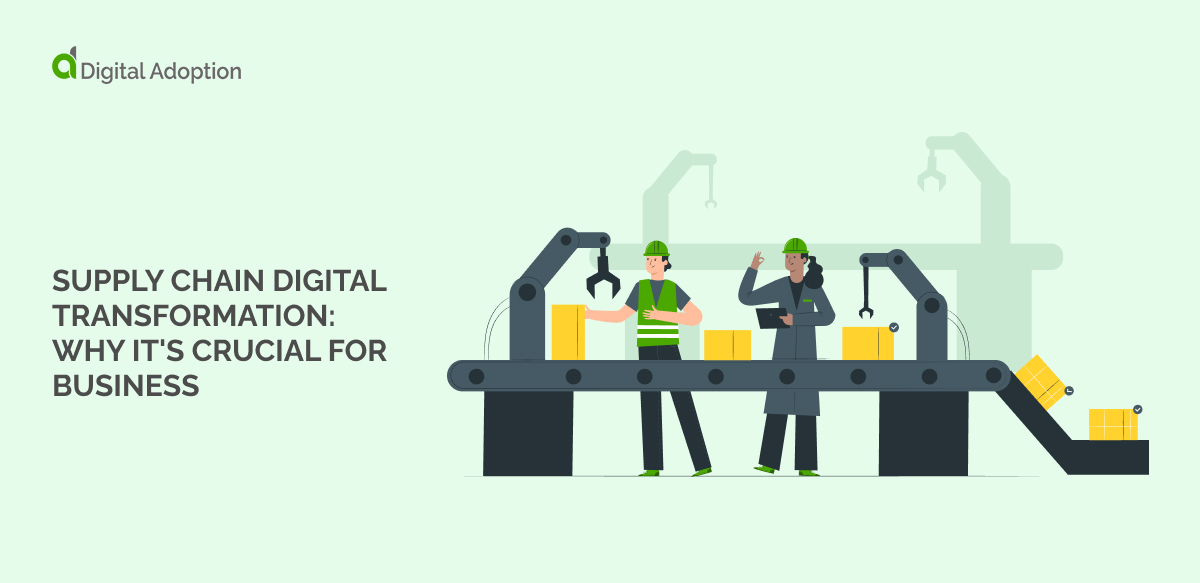In this article, we’ll explore digital transformation and the key role of data and information.
Namely, we’ll see:
- How data analytics drives successful digital transformation, adoption, and evolution
- How to transform data into insights and insights into action
- Why it is important to democratize data
Among other things.
Let’s start at the beginning: why is data important?
Digital Transformation and the Key Role of Data and Information
Information is an asset – and that asset is made of data.
Businesses with the right information can gain:
- Insights – Data, once analyzed, can reveal patterns, trends, and insights. The right insights can help companies understand causes and effects, pinpoint weaknesses, identify opportunities, and more. There is virtually no business area that couldn’t benefit from data and analytics.
- Intelligence – Intelligence, such as competitive intelligence or business intelligence, can help your company make the right strategic moves at the right time. You can also learn more about your customers, the marketplace, your industry, and economic trends. All of this information can give your company a significant advantage.
- Foresight – Predictive capabilities are one of the most interesting, useful features of AI and data analytics. With the right amount of data, and the right information, you can make predictions about any number of things, from customer sentiment to project outcomes.
Ultimately, these benefits translate into competitive marketplace advantages.
As with any other digital technology, data technology can eventually create an unfair advantage for a business.
That’s why every company should strive to incorporate data into every area of their organization.
Becoming Data-First
There are a few ways you can use data to drive transformation.
The first is by building skills and breaking down barriers:
Democratizing Data and Building Skills
Democratizing data is an essential step in the adoption of data technology.
There are a few steps to achieving a “data democracy”:
- Break down data silos
- Encourage collaboration and sharing
- Offer employee training and education
- Hire citizen data scientists
In short, you should begin making data a part of your everyday business culture.
And this is exactly what McKinsey advises…
Building a Data Culture
A corporate culture can be many things – innovative, competitive, digital, relaxed, social, or formal.
A cultural climate can impact a company’s direction and affect the success rates of projects.
Innovative, digital-friendly cultures, for example, will be more open to change, new ideas, and new technology.
It is easy to see how such a climate would positively impact digital transformation efforts.
This is why McKinsey suggests proactively building a “data culture.”
In their article, they describe seven characteristics to aim for:
- Approach data analysis as a practical tool to deliver insights – not as a science experiment or a toy
- Get support from the C-suite and maintain a continuous dialogue with executives – this will help integrate data into the decision-making conversation
- Democratize data – get data from the ground up and encourage involvement at every level
- Make risk management an accelerator – introduce data into key processes and interactions responsibly
- Find cultural catalysts – change agents are not always digital natives or data experts, but someone needs to lead the charge
- Be careful how you share your data – data can become a competitive advantage, which is why you should reconsider “open borders” policies when it comes to sharing data
- Marry culture and talent – instead of overturning your existing culture by hiring too many new employees, strike a balance between new blood and upskilling existing workers
These recommendations were gleaned from conversations with leaders from major industry leaders.
They can act as excellent guidelines to follow when developing a data culture.
How to Increase Data Competency
How can you build data competency at the organizational level?
A Gartner article on data recommends four steps:
- Collect and socialize real-world examples of the benefits derived from data and analytics
- Offer or insist to participate in strategic planning, to ensure that data and analytics are incorporated into those plans
- Measure and communicate the value of the company’s information assets, in order to persuade the culture into believing and behaving as if information is an asset
- Build, buy, and borrow advanced analytics capacities, then embed them within the business
These action steps can help you make progress towards a digital-first, data-centric business.
Conclusion
Data-driven businesses have a significant advantage in the marketplace.
They can optimize processes, gain more insights, see farther into the future, and make better decisions.
There will be stumbling blocks along the way, of course.
Employees will resist change. Budgets will be tight. Executives will fail to support initiatives.
However, in today’s digitally-driven economy, adopting new technology is a requirement.
Companies should transform the way they handle data, sooner rather than later. Those that do will have more access to better information.
That information, in turn, will help them survive and thrive in the digital age.

 FACT CHECKED
FACT CHECKED











